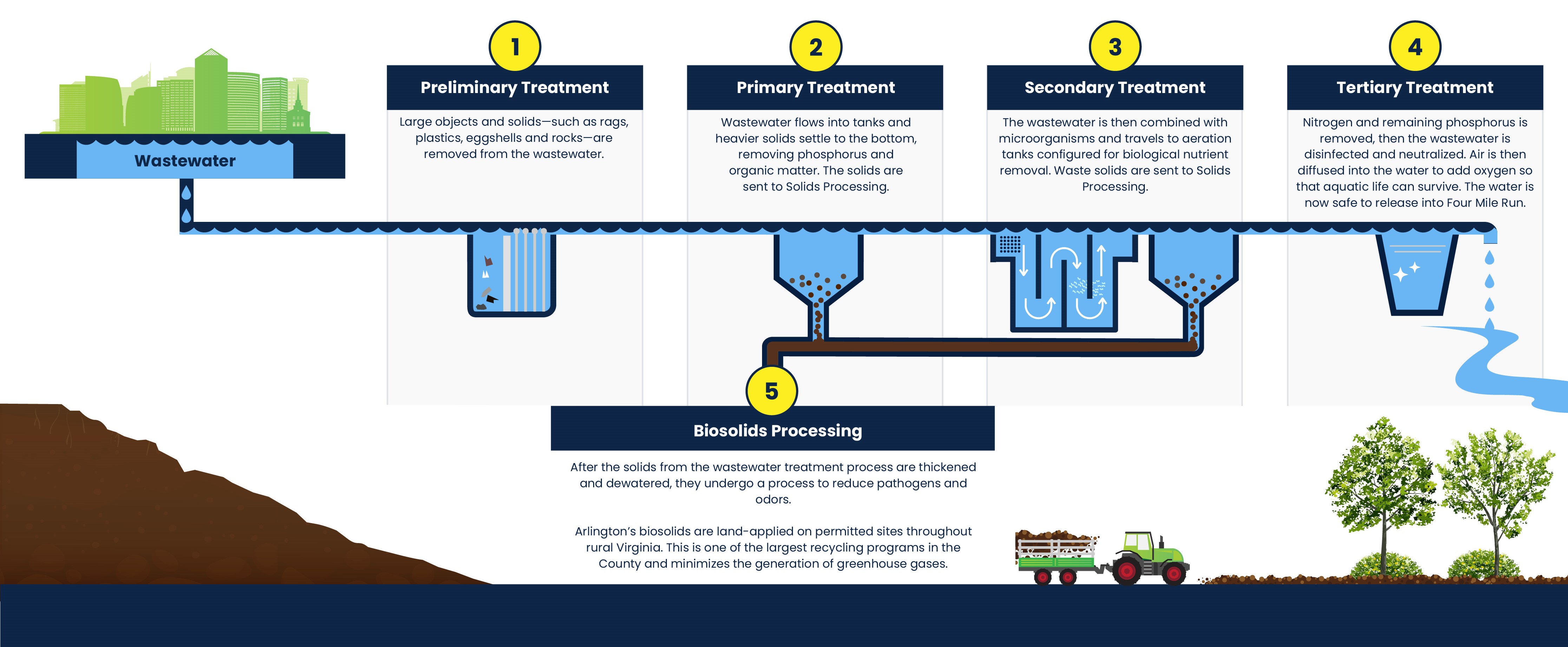FAQs
FAQs
The Water Pollution Control Board works to protect public health and the environment and we have developed master plans to guide our work. Arlington Re-Gen is part of the Water Pollution Control Plant’s Solids Master Plan. Previous plant upgrades completed in 2011 addressed liquid treatment and reduced the amount of nitrogen and phosphorus discharged into County waters. The Board is now focusing on upgrades to its solids treatment facilities, which will create opportunities for sustainability and resource recovery. You may find more information, including project documents and public meeting materials here.
Arlington County plans to use Thermal Hydrolysis Pretreatment with Anaerobic Digestion (THP/AD) as the backbone of its solids treatment process. THP/AD uses high temperature and pressure to break down wastewater residuals and produces a highly stable Exceptional Quality Class A biosolids material.
Class A is a designation given to high-quality, nutrient-rich solids that are a byproduct of the wastewater treatment process. To meet the Class A requirement, biosolids must undergo strict processes to remove pathogens, pollutants and must not attract disease-carrying insects or rodents. Class A biosolids can be applied like any other registered fertilizer on lawns, gardens, parks and golf courses in urban areas based on soil nutrient recommendations for plant growth.
Yes, Class A biosolids can be safely handled and used by the general public and can be applied like any other registered fertilizer on lawns, gardens, parks and golf courses in urban areas based on soil nutrient recommendations for plant growth.
Studies have demonstrated that biosolids applied according to current EPA and Virginia standards pose no risk to the Commonwealth’s water. Federal and state regulations, agricultural best management practices and nature provide multiple layers of protection for our streams and groundwater. Virginia regulates how biosolids are applied in order to prevent runoff into streams or leaching into groundwater, and studies also show that biosolids can help reduce runoff into our streams and leaching into groundwater.
No, the odor from biosolids is not harmful, and research has shown that the odor from biosolids does not cause signs of illness in healthy individuals. Biosolids have a distinctive odor because of processing and handling practices. The odor is caused by compounds containing sulfur and nitrogen, which are produced when proteins in biosolids break down. Gases that have a possible toxic effect are not present in biosolids in concentrations that would endanger nearby residents.
Arlington County currently produces Class B biosolids that are applied on permitted sites throughout rural Virginia.
Biogas is a renewable energy source that is produced by the breakdown of biodegradable material in the wastewater treatment process. The biogas generated is then cleaned through an advanced gas upgrading process. This renewable energy source can be used in place of fossil fuel-based natural gas or as a renewable vehicle fuel.
The process to upgrade biogas to renewable natural gas includes removing carbon dioxide (CO2) and trace level contaminants. As a renewable energy source, renewable natural gas displaces the use of fossil fuel-based natural gas.
Wastewater Treatment Process
Click image to expand.


